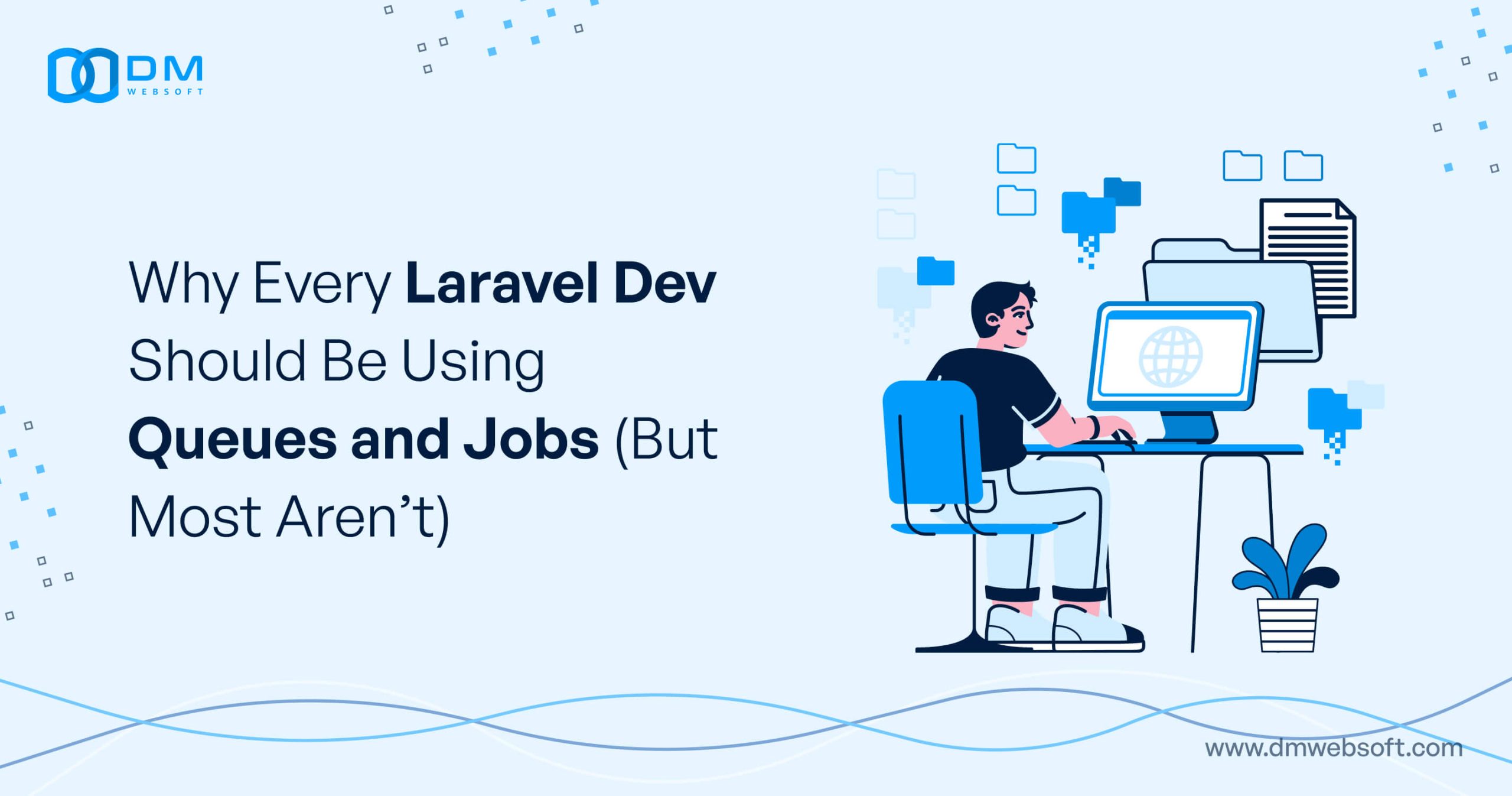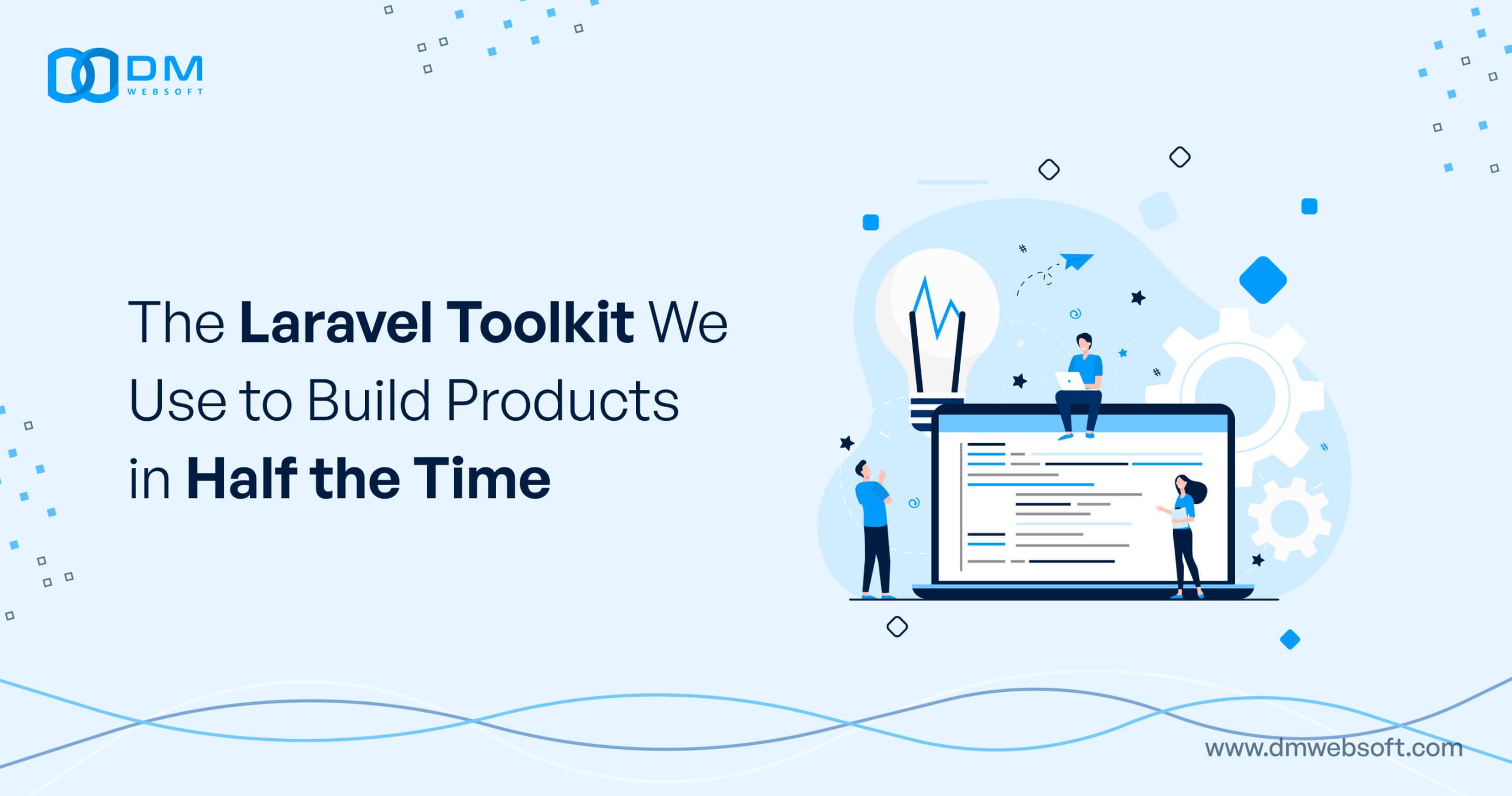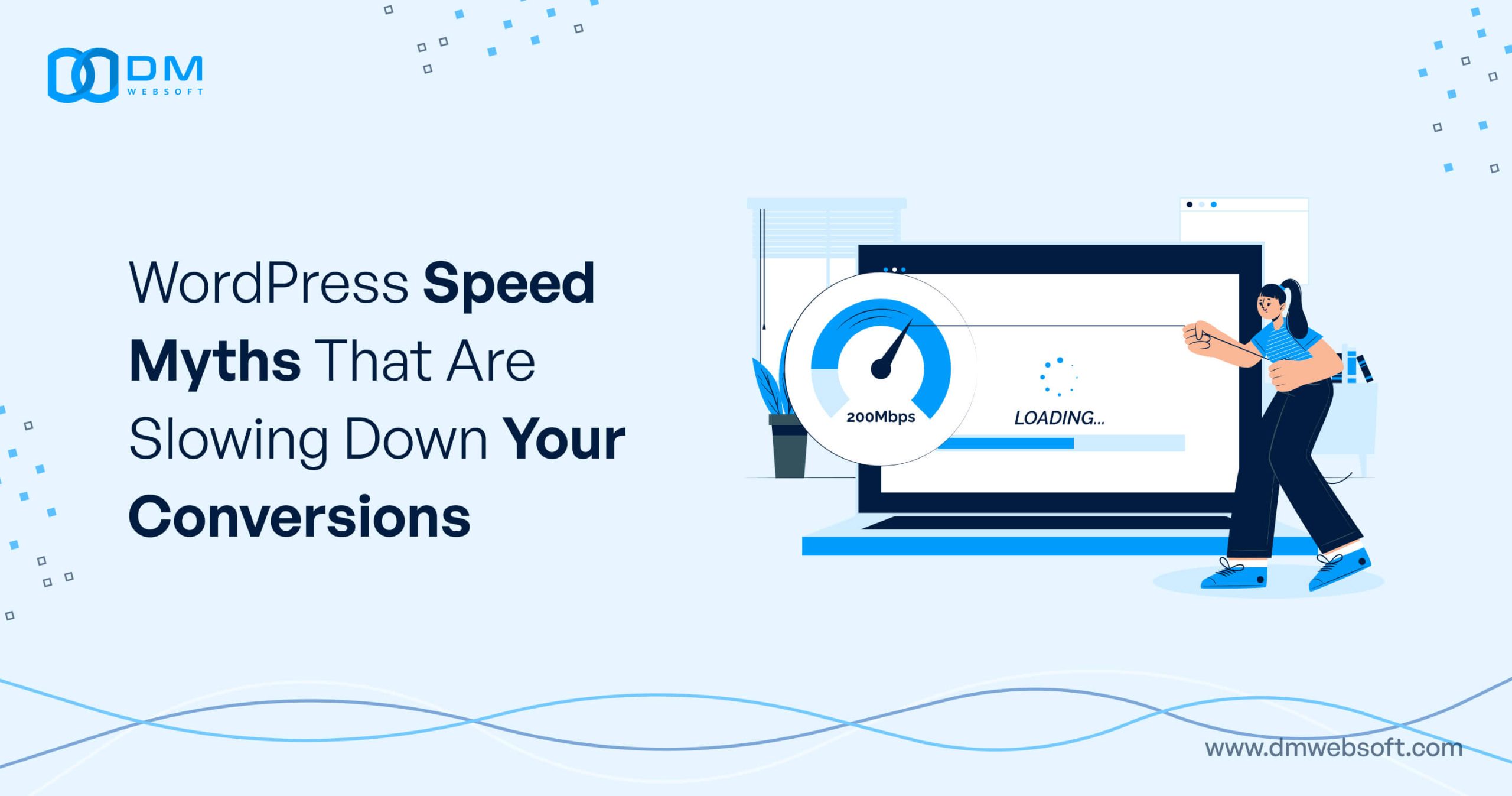DM WebSoft LLP exceeded our expectations! Their seasoned team of experts delivered a website that perfectly captures our brand essence. Their 15+ years of experience truly shine through in their exceptional web development skills.
AI in Logistics: Transforming Supply Chain Management

TABLE OF CONTENT
Get in Touch
Introduction
Today, in the modern logistic environment and management system of supply chain, Artificial Intelligence (AI) is not any far, futuristic idea; rather, it signs toward development and efficiency. Artificial Intelligence Integration into Logistics: Artificial intelligence integrated into logistics is changing the way by which goods are moved and managed across the world, hence making operations fast, cheap, and most of all, customer-oriented.
In essence, AI in logistics harbors a wide range of technologies, among them being machine learning (ML), natural language processing (NLP), and advanced analytics that have found a special position in the logistics ecosystems. All these technologies pool resources for decision enhancement, automation of manual processes, and further trend predictions to optimize the supply chain.
Machine learning is an extremely important sub-field of AI. It uses historical information and the prevailing trend of data to very accurately point towards the future needs of demand. This predictive ability allows smarter inventory management while ensuring products are available as and where needed, thereby reducing waste. The NLP simply injects the semblance of human understanding in the logistics systems so that they can process inquiries from customers, interpret complex data from e-mails and documents, and even respond to verbal instructions inside warehouses for further streamlining of operations.
The most important benefit of integrating AI with the logistic system is truly the power of making decisions based on data, rather than on gut feelings or experience from the past. Today, AI crunches everything from traffic patterns to weather forecasts, and that purely has to make the most effective logistic decisions ensuring timely and efficient delivery of goods.
Operational efficiency is another critical benefit. In the technology context, artificial intelligence optimizes route planning, fleet management, and the famous inefficiency associated with last-mile delivery. It evaluates several options of the route to seek the best routes that shall save time and fuel. Other examples of how AI will change logistics actually pertain to delivery of goods and show how it is, in fact, something that AI can overhaul: autonomous scheduling and real-time rerouting capabilities. Cost reduction is a direct result of AI’s optimization capabilities.
With AI, the resources—vehicles, space of the warehouse, personnel—get the most out of them, reducing waste and operations move with the natural rhythm that arises between the offer and demand.
Predictive maintenance models also assist in predicting the failure of equipment before it occurs, hence saving costly downtimes and ensuring reliability in operation. Another sphere where AI works with excellence is the customer experience in logistics. AI-driven chatbots and customer service tools provide customers with lightning-fast and reliable support that fully reaches the expectation of the present level of response speed and content.
This type of customized service will set new standards in customer support and therefore, loyalty and satisfaction. In a nutshell, AI in logistics is totally transforming operational conduct in the industry to be optimally efficient, cost-saving, and ensure the best customer satisfaction. And with evolution, this has an enormous transformational impact on the logistics landscape, ensuring an even more streamlined, cost-effective, and even more customer-focused supply chain.
Key Benefits of AI in Logistics
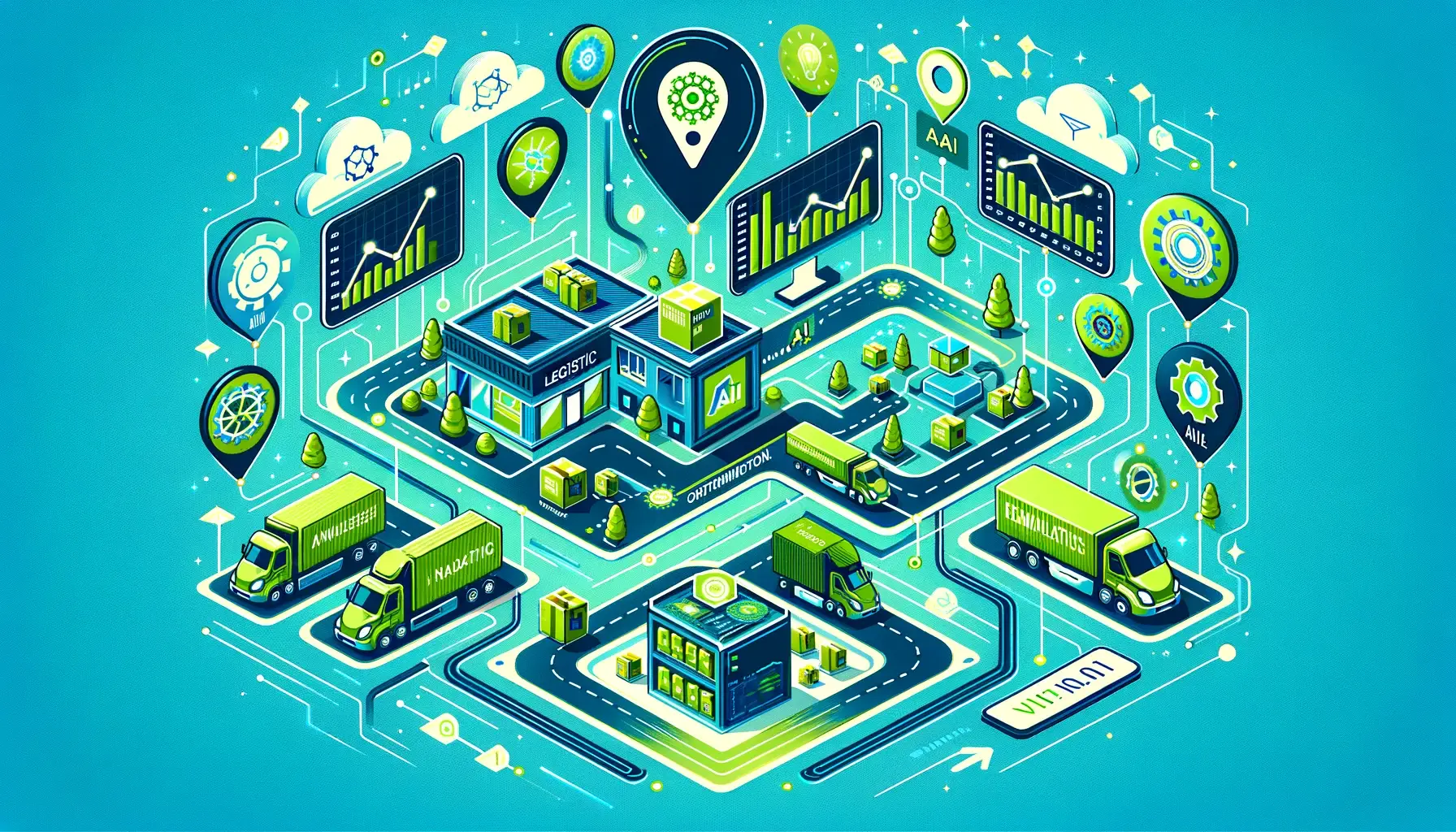
The supply chain and logistics are on transforming verge, majorly guided by Artificial Intelligence (AI). This is taking the process a step further from automation to make logistic smart, efficient, and more responsive toward customers. Some of the benefits that AI provides to logistics are discussed below.
Data-Driven Decision Making
In this area of logistics, AI processing capability and the ability to analyze big datasets are needed, where decisions should be very fast and exact. Traditional human-based history data decision making is being replaced by AI-driven analytics, providing precision and speed. On the other hand, an AI-armed real-time data system enables logistics companies to make their decisions, ranging from optimized routes to an accuracy that cannot be matched in demand forecasting. This shift towards data-driven decision making is setting new standards in operational efficiency and reliability.
Operational Efficiency and Cost Reduction
AI drives operational efficiency across the whole logistics spectrum. Using intelligent route planning, the AI algorithms will manage to optimize the use of resources and result in the highest efficiency that, in essence, saves on time and fuel costs. Predictive maintenance is also borne by AI and helps in reducing downtime, given that failure of equipment and its associated cost is predicted in advance.
With these capabilities, AI removes any boring works that are not up to people’s anticipation. It helps the company increase its operation speed and saves tens of thousands, hundreds of thousands, or even millions of dollars that employees’ hands-on operation would have wasted to complete their tasks, like inventory management and processing orders, etc.
Enhanced Customer Experience
AI redefines customer service in logistics. The AI-driven chatbots help to bring about instant, round-the-clock support; hence, issues will be resolved and inquiries answered faster than ever before. This same immediacy of response is what modern customers consider fast, efficient service, which contributes in a big way to overall customer satisfaction. Last but not least, the capability of artificial intelligence in enabling the personalization of customers’ interaction through understanding and predicting the customers’ needs beforehand will help in deepening the relationship of the logistics provider with the customer; it actually creates the new benchmark of customer experience for the firm.
Improved Predictive Analytics
At the heart of this AI revolution in logistics are predictive analytics. Concurrently, AI makes accurate predictions of demand developed from historical data, current tendencies, and a number of other external factors that help companies in the minimization of their inventory levels and avoidance of overstocking or stock-outs.
This is why this oversight aims at identifying likely disruptions in the supply chain that would assist those companies in adjusting strategies early enough. This, in turn, will make logistics operations flexible and robust enough so that market orders can be predicted and served better.
Optimized Linehaul and Last-Mile Planning
AI optimization, on the other hand, is very useful in the last-mile delivery part, which tends to be rather intricate and costly in the shipping process. AI can predict shipping volumes from large data sets, which will allow better line-haul and last-mile planning. It involves charting out the best routes, preparing a time delivery schedule that will not come in the traffic hours, and making use of the resource most effectively. These include shorter delivery times, reduced environmental impact via lower emissions, and lower operational costs—all in a bid to serve the end-customer better.
The integration of AI in the logistics process is revolutionary by its intelligence, data analytics, and customer approach; it is far from simple automation. That helps in the improvement of not only the efficiency and profitability but also the general resilience of the supply chain, such that it is better ready for challenges of the present and future times. This is precisely where technology providers like DM WebSoft LLP come into the picture, with adequate experience that allows them to maneuver such changes and allow businesses to make the best use of AI in logistics.
Challenges and Best Practices in AI Implementation
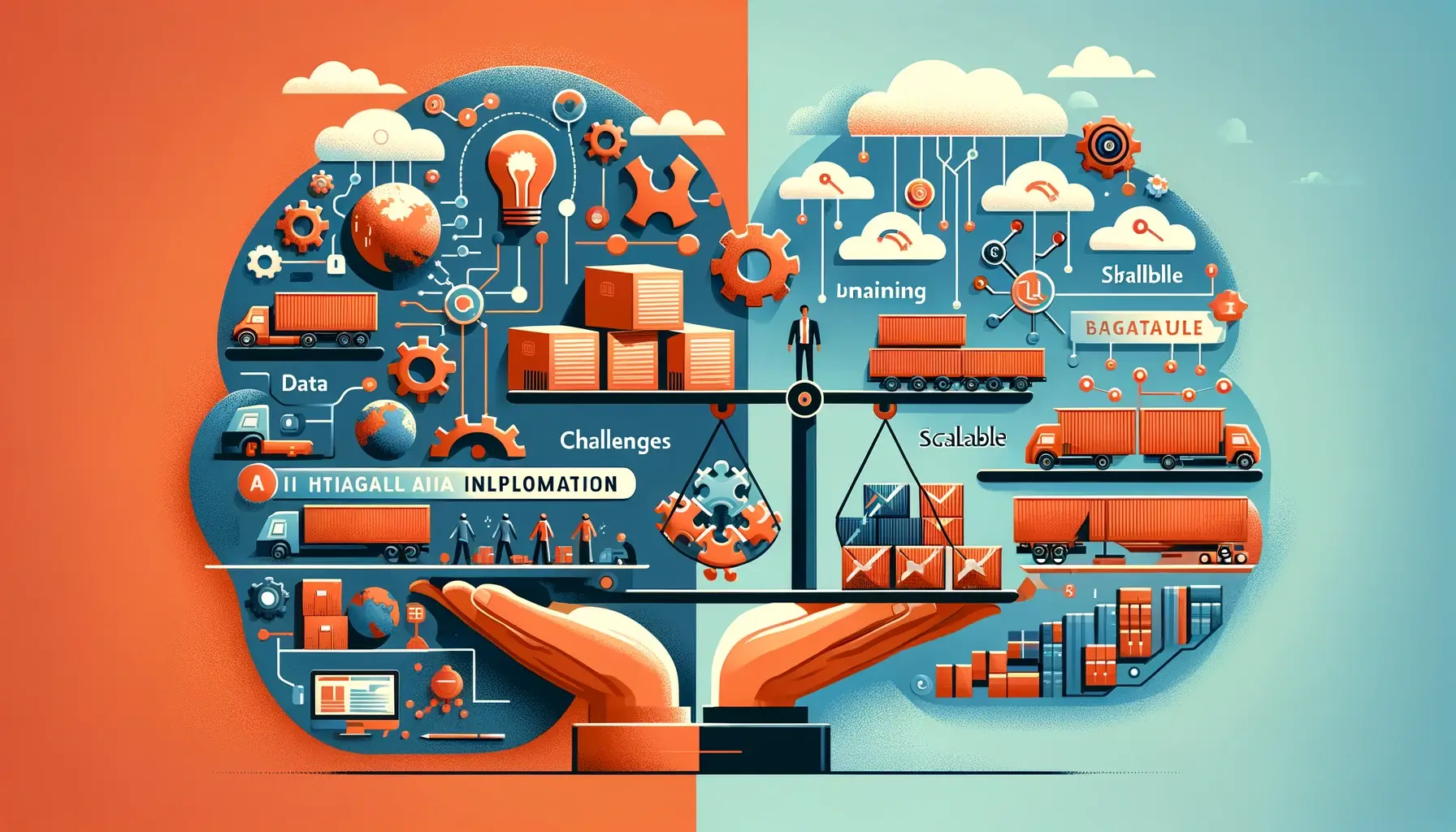
Artificial Intelligence (AI) in logistics holds a number of perks for the operations, right from operational efficiencies to enhanced customer experiences. But the implementation of AI has got a lot of pitfalls in its way. Successfully dealing with these requires strict adherence to a set of best practices that ensures the realization of the potential of AI without, necessarily, putting at risk its operational integrity or, worse still, the financial stability.
Challenges in AI Implementation
- High Integration Cost of AI Technologies: The integration cost of AI technologies may be high. Organizations will have to invest more in training employees and in bringing about changes or updating their existing systems to support the newly implemented AI functionalities rather than even the purchase of hardware and software.
- Data security and privacy concerns: The effective functioning of the AI systems depends mainly on large volumes of data; protecting them is very essential. To ensure that sensitive information is kept safe from breaking, very strong cybersecurity is needed.
- Integration with existing systems: Most of the logistics companies at present are using legacy systems that, in any way, fail to integrate with most of the high-flown AI. Overcoming technical and compatibility issues for smooth integration becomes a key challenge.
- Gap of skills and preparedness of the workforce: The organization will require qualified data scientists, machine-learning experts, and others who are related to the disciplines for successful deployment in AI adoption. However, there are major gaps in the skills available in the market, where companies identify this as a challenge to tap the full potential of AI.
- Ethical and Legal Implications: The deployment of AI solutions arises with a question about the autonomy of the AI, who is accountable, and an effect on employment by an AI. Added to that is the dealing with complexities of the legal landscape, which may not fully address all new subtleties linked to AI.
Best Practices for Effective AI Implementation
- Strategic Planning and Goal Setting: Prior to the commencement of AI integration, a crystal clear understanding of business goals and the areas in which AI could be handy are very necessary. For instance, this involves the identification of particular challenges within logistical operations that AI can address, and in turn, clear target setting for improvements AI will drive.
- Invest in Training and Development: Companies should make investments in training the current workforce about AI and data analytic skills so as to fill the skill gap. Collaboration with educational institutes or even having in-house training programs helps in preparing the workforces in such a way that they are able to work in line with AI technologies.
- Quality and Secure Data: High-quality data and its accuracy is a lifeline for AI systems. Some of the key aspects relate to the fact that companies should have strict policies on data governance and never compromise with the data integrity and security from harm. These may include regular audits, encryption, and adherence to cybersecurity best practices to ensure data security.
- Foster Ethical AI Use: The adoption of AI ethical guidelines is of paramount necessity, among them transparent and explainable AI decisions that do not violate fairness. They should also consider society and the environment in their AI initiatives for sustainability and social responsibility through their solutions.
- Work with AI Experts and Vendors: It may sometimes be a good idea to get into partnerships with bedded AI experts and seasoned AI vendors or consultants, provided you know the level of sophistication in their AI technologies. Such partnerships would provide access to the latest AI tools and possibly share best practices and advice on making effective integration with existing logistics operations.
- Embracing a Culture of Innovation: Nurturing a culture of adopting and embracing advancements and innovations in technologies is a very critical part of implementing AI rightly. Encouraging experimentation, learning from failures, and continuous seeking for improvement may further prompt AI adoption and help keep long-term logistics operations competitive and enduringly effective.
Adopting AI in logistics is no simple venture, but if the following best practices are adhered to, then companies may not only easily be able to navigate the complexities but also easily wield the power of AI to bring about a massive and positive metamorphosis in the logistics space. From strategic planning to ethical considerations, the following guide lays out a roadmap for integrating AI in ways that would boost operational efficiencies, customer satisfaction, and growth of business.
AI in Action: Use Cases and Future Prospects

Today, Artificial Intelligence (AI) is operational in logistics and not just a theory. From prediction analytics to driverless vehicles, AI is turning the logistics operations more effective and cost-competitive centered on customers. Some of the revolutionary use cases of AI in the logistics industry are discussed further to enlighten what the coming times have for this potent fusion.
Revolutionary Use Cases of AI in Logistics
For example, AI capability in analyzing big data and forecast future demand revolutionizes inventory management.
This would mean that with the help of demand forecasting, the company will have the best level of inventories so that there is no overstock or stockouts, which in the end reduces cost and increases customer satisfaction. This is while DHL and other giant companies in the supply chain use AI to predict disruptions using monitoring from social media.
- Automated Warehouses: The time for AI-powered warehouses is now. Giants like Amazon have more than 200,000 robots deployed in their warehouse for item picking, packing, and sorting, making it a far more efficient undertaking than any human effort and achieving error rates at exponentially low levels. These are examples of how AI can make things easier and more efficient.
- Intelligent Routing and Delivery: It uses AI to optimize the delivery route, taking into consideration all factors from traffic patterns and weather conditions to even the delivery windows. The AI can be an important tool for companies to maintain timely deliveries and, hence, fuel savings while ensuring cutting of carbon emissions. Dynamic routing algorithms could change in real-time with disruptions, showing the flexible and powerful face of AI in last-mile logistics.
- Autonomous Delivery Vehicles: The future of delivery lies in autonomous vehicles and drones. Companies like Nuro are pioneering the revolution with AI-powered, fully autonomous delivery vehicles designed to reduce traffic congestion and carbon emissions, all while making faster and safer deliveries. This use case is of great value to point out a greener and much more efficient future for logistics.
- Enhanced Customer Service: Logistics according to AI-driven chatbots and virtual assistants transform customer service. They can answer questions from customers within no time and allow for live tracking of customers’ shipments, almost giving that personal touch to the service. This, on the other hand, takes logistics customer service to another level.
Future Prospects: AI’s Evolving Role in Logistics
The future of AI in logistics appears fairly bright. Progressive developments should carry more changes to the industry. Here are a few areas where AI’s impact is expected to multiply:
- More Advanced Predictive Analytics: As AI technologies improve, predictive analytics will become better and more accurate, hence aiding companies to have an improved view of likely market trends, consumer behavior, and disruptions.
- Increased Automation: Most leading companies foresee that advancements in technologies like robotics, machine learning, and computer vision will further drive the automation of logistic processes, from warehousing to delivery.
- Enhanced transparency in the supply chain: AI is going to enhance the level of visibility from the beginning of production up to when a product is delivered, thus with no doubt improving the level of accountability and efficiency.
- Sustainability and Green Logistics: AI will help in furthering the sustainability of logistics. This is because it optimizes routes and operations with minimal influences on the environment. It will also be of great help in encouraging green logistics practices.
- Personalized Logistic Solutions: In the future, AI promises logistic solutions which are much more personalized and flexible, catering to precise business requirements and customer preferences with an accuracy and efficiency unheard of until now. In conclusion, the integration of AI in logistics is ushering in a new era of innovation and efficiency.
The more capabilities these technologies give them, the more impressive applications and improvements will be seen, with more and more acknowledgment of the importance AI has in the future development of logistics. Companies like DM WebSoft LLP, which have developed exacting expertise in AI and logistics, are best positioned to help move that transformation forward, advising businesses on the best use of AI in optimizing their operations and, in turn, optimizing their competitive advantages.
Integrating AI in Your Logistics Operations with DM WebSoft LLP
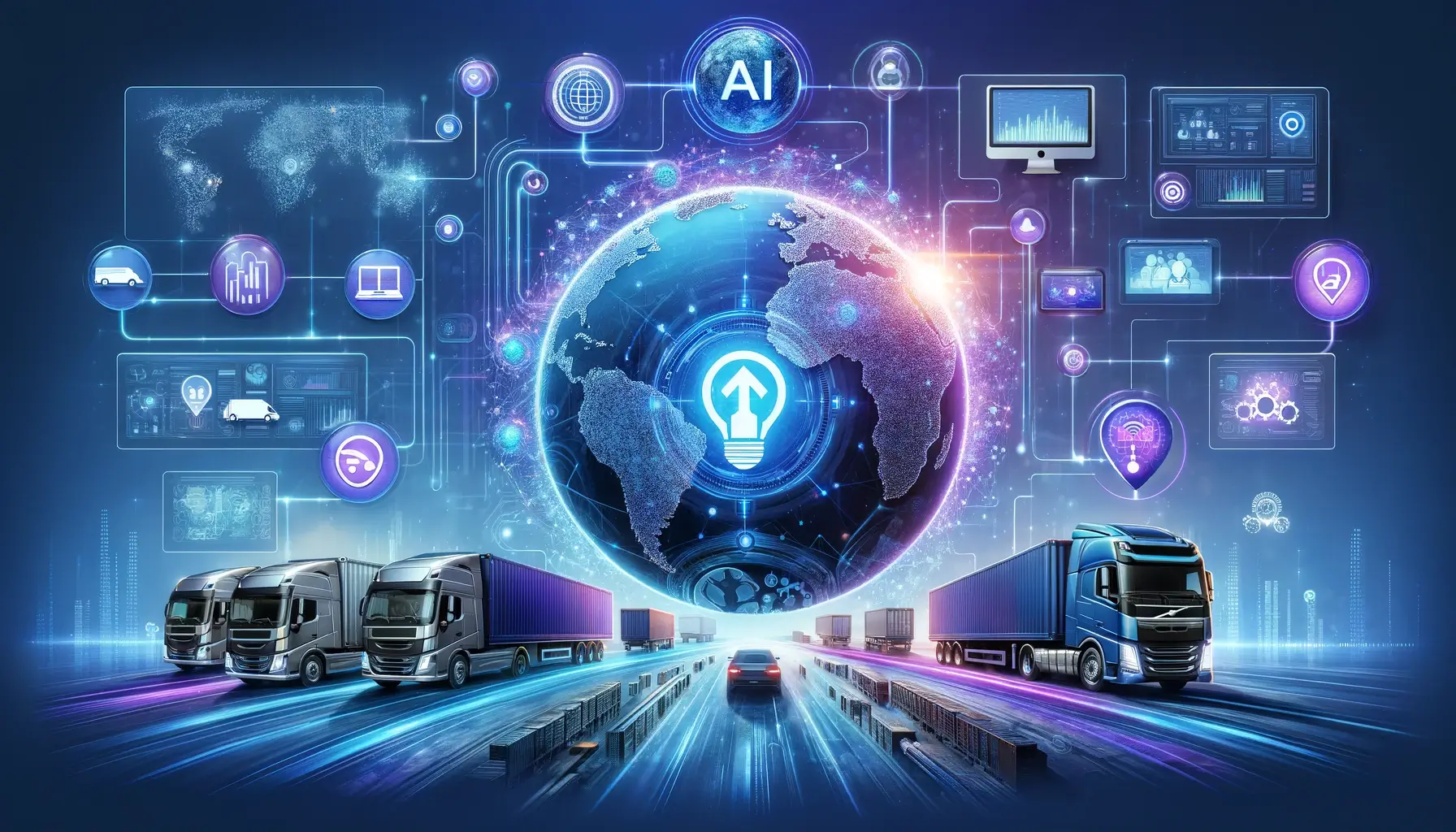
Integrating AI in your logistics operations would imply strategic realization toward higher efficiency, response, and intelligence in supply chain management. DM WebSoft LLP leads with state-of-the-art technology and best-in-breed expertise to help your businesses unleash value in this transformative journey. Let’s see how DM WebSoft LLP is able to help in integrating AI into logistic operations, which in turn will help businesses fit not only in the new picture but also prosper in it.
Tailored AI Solutions for Every Logistics Challenge
DM WebSoft LLP focuses on creating a customized AI solution that will address the challenges and needs which logistics operations might be facing. From route optimization to inventory and warehouse management, and even customer service, DM WebSoft LLP solutions are tailor-made according to your needs so as to derive efficiency and cost.
- Leveraging Data for Informed Decision Making: The transformative power of AI basically lies in its capability of analyzing big data for informed decision-making. DM WebSoft LLP helps businesses in harnessing this through our implementation of advanced analytics and machine learning models. They will crunch and interpret big data sets from traffic to weather reports, so that logistic operators can build better, rational decisions supported by data.
- Streamlining Operations with Automation: Automation becomes the lynchpin the way AI is used in logistic applications, and DM WebSoft LLP best harmonizes automated systems with flowing work structure. Starting from autonomous warehousing solutions.
- Enhancing Customer Experience through AI: The company values customer satisfaction in logistics to a high level. They provide customer care services through AI-based chatbots and personalized communications platforms. New tools build a new standard in customer engagement, which provides the ability for effective customer service through timely and accurate response giving to their inquiries, updates in tracing, and offered service packages.
Future-Proofing Logistics with Predictive Analytics
The AI capabilities of DM WebSoft LLP also come into play in the area of predictive analytics. From forecasting demand to anticipating supply chain disruptions, predictive maintenance needs are one of the host of other predictions that solutions from DM WebSoft LLP enable the host business to stay one step ahead.
This approach to logistics management is, therefore, not only proactive but one that ensures market or operational competitiveness is maintained in the market that keeps changing rapidly.
Commitment to Ethical AI Use DM WebSoft LLP, hence, follows these ethical considerations for AI, and the company makes sure its development and deployment come with a huge amount of responsibility. This will be inclusive of transparent processes of AI-based decision-making, care for data privacy and security, and also bring an ethical AI culture within the organization and its client base. Partnering for Success DM WebSoft LLP not only has readymade AI solutions for its clients but also works with clients in a collaborative manner.
From early consultation and solution design through deployment and continuing support, DM WebSoft LLP walks with each of their clients side by side to ensure their adoption of AI is seamless, impactful, and in line with their strategic goals. These provide AI-integrated solutions that open the road for unprecedented efficiency, agility, and customer contentment. For these businesses, DM WebSoft LLP unfolds the path of AI integration and accessing the latest technologies to revamp their logistics.
The future is smart logistics, and DM WebSoft LLP empowers your business to amply take the front seat and lead by leveraging AI to power growth and innovation.
Conclusion
As we stand on the point of the dawning era of logistics and supply chain management, one thing is becoming clear: from being dismissed as a buzzword, Artificial Intelligence (AI) now is a transformational force. The journey of integration, be it integration of AI in logistics—from strengthened data-driven decision-making and operational efficiency to redrawing customer experiences and beyond—is an analogy to a center change towards smarter and more resilient operations.
The examples discussed here, with future prospects, go to prove the huge impact that AI will certainly bring to logistics, way beyond the potential of increased efficiency and cost savings but also the promise it holds for a more sustainable and customer-centric approach to supply chain management. AI will change that and allow the logistic operations to forecast and answer an evolving, dynamic, and ever-changing market demand like they never did before.
DM WebSoft LLP is recognized as one of the most impactful key enablers concerning skills and technological prowess required to realize the full potential of AI in logistics. DM WebSoft LLP has honed their AI abilities to tailor solutions perfectly fitted for each of the business’s very distinct challenges. This ensures that more than the effective integration of these technologies is guaranteed, and they are applied in ways that yield value for the company, from the warehouse floor to the final mile.
At the same time, along the prospects of the road are many for integration of AI into logistics, and the challenges are just as numerous. Meantime, with proper best practice adoption and staying glued to a strategy, the business will get successful adoption of AI with much ease. It future-proofs their operations, ensuring efficiency, sustainability, and a focus towards the customer in the logistics industry.
Conclusively, the use of AI in logistic operations does not amount to infusion with technology investment but commitment to innovation and excellent performance. Taking into consideration the advanced technologies with the demands of the present globalized economy, AI in logistics will indeed take a more enhanced part in the future. With partners like DM WebSoft LLP, businesses are placed well to lead from the front in this charge, converting challenges to opportunities and setting new benchmarks in the field of logistics and supply chain management. We are on the brink of an AI-driven logistics journey, with the horizon simply our canvas.
AI in logistics applies to the use of Artificial Intelligence technologies, among them being machine learning, natural language processing, and predictive analytics, for more streamlining and automation of the operations. The technology aids in analyzing data toward route optimization, inventory management, and prediction of demand, and it is vital for improving customer services that make logistic operations efficient and cost-effective.
AI increases the operational efficiency through the automation of routine operations, optimal delivery route planning on up-to-date data, elimination of downtime by predicting the need for repairs, and improved inventory management due to a more precise forecast of demand. These also translate into vast reductions in costs related to errors and inefficiencies.
The barriers of implementing AI in logistics include high upfront investment costs, complexities in integration with existing systems, concerns for data security and privacy, and a requisition for specialization in skills to manage and operate AI technologies. To overcome such barriers, strategic planning of the investment in training and an ethical use perspective of AI have to be brought to the fore.
AI is centered on the customer experience; hence, an improved customer experience due to personalized and instant service, represented through the employment of chatbots, tracking delivery in real time, and predictive analytics to ensure delays in delivery are eliminated. A level of service that is both personalized and efficient and that sets new standards in customer satisfaction in the logistics industry.
AI in logistics has a bright future, as the emergence of these developments will bring greater advanced predictive analytic capabilities, increased automation, better transparency of the supply chain, and sustainability. AI will act as the catalyst innovation of logistics to deliver solutions that are more efficient and adaptable to changing market dynamics, hence even more customer-centric.
Get Started Now !
What’s the Process ?
Request a Call
Consultation Meeting
Crafting a Tailored Proposal
Get Started Now !
Real Stories, Real Results. Discover What Our Clients Say

Working with DM WebSoft LLP was a game-changer for our business. Their technical prowess and innovative solutions transformed our online presence. A highly recommended web development agency with a stellar track record.

We are thrilled with the results DM WebSoft LLP delivered. Their deep understanding of web development coupled with years of expertise ensured a seamless and visually stunning website. True professionals!

In a digital age where first impressions matter, DM WebSoft LLP crafted a website that speaks volumes. The team’s attention to detail and commitment to quality set them apart. Thank you for making our vision a reality.

DM WebSoft LLP’s team demonstrated unparalleled expertise. Their ability to navigate complex technical challenges with ease is truly commendable. Choosing them for our web development needs was the best decision.

Exceptional service, unmatched skills! DM WebSoft LLP stands out as a leading web development agency. Their collaborative approach and commitment to excellence make them our go-to partner for all things web-related.

DM WebSoft LLP turned our ideas into a digital masterpiece. The seamless communication and timely delivery of our project showcased their professionalism. Highly impressed with the level of creativity and skill.

Our experience with DM WebSoft LLP was nothing short of amazing. From concept to execution, their team provided top-notch web development services. A reliable partner for businesses looking to elevate their online presence.

DM WebSoft LLP’s team of tech experts is second to none. Their wealth of experience reflects in the quality of their work. Our website not only meets but exceeds industry standards, thanks to their dedication.

Choosing DM WebSoft LLP was the best investment for our web development needs. Their team’s proficiency, coupled with a customer-centric approach, made the entire process smooth and enjoyable. A pleasure to work with!



